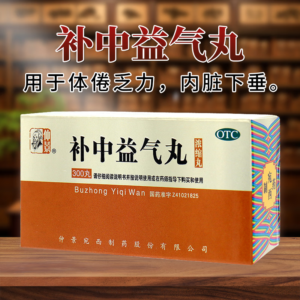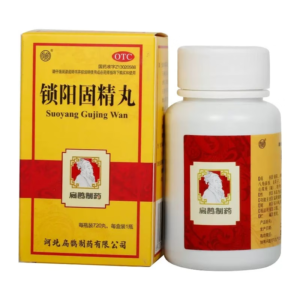Lily Solid Gold Soup
Volume 7 of Shenzhai’s Book of Death: Lily Solid Gold Soup
Prescription: 9g each of Rehmannia glutinosa, Radix Angelicae Sinensis, 3g each of White Peony Root and Licorice, 2.4g each of Platycodon Grandiflorum and Radix Yuanshen, 1.5g each of Fritillariae Mume, Radix Ophiopogonis and Lilium
Functions and Indications: Nourishing Yin and Clearing Heat, Moistening the Lungs and Resolving Phlegm. Treats Kidney Water Deficiency, Deficiency Fire Injuring Metal, Coughing and Asthma, Dry Sore Throat, Blood in Sputum or Hemoptysis, Hot Hands and Feet, Red Tongue with Less Coating, and Thready and Rapid Pulse. It is now used for patients with lung and kidney yin deficiency such as tuberculosis, tracheitis, bronchiectasis, mid- and late-stage pneumonia, lung cancer, and pharyngitis.
Usage and Dosage: Decoction in water.
If coughing, add 20 Schisandrae Chinensis Fruits on the first and second doses.
Note: Lily and raw and cooked rehmannia nourish the yin fluid of the lung and kidney and are the main drugs; Ophiopogon japonicus helps lily to nourish the lung yin and clear lung heat, Scrophularia ningpoensis helps raw and cooked rehmannia to benefit the kidney yin and reduce the deficiency fire, and they are all the minister drugs; Angelica sinensis and Paeonia lactiflora nourish blood and nourish the body, Fritillaria thunbergii and Platycodon grandiflorum resolve phlegm and relieve cough as adjuvants; Licorice harmonizes the drugs as the messenger. The combination of the drugs can restore the yin fluid and consolidate the lung metal, and cough and vomiting blood will heal themselves.
Excerpt from “Shenzhai’s Legacy” Volume 7
“Shenzhai’s Legacy”: Lily Solidifying Gold Soup
Composition: Lily 1.5 qian (4.5g) Rehmannia glutinosa, raw Rehmannia glutinosa, Angelica sinensis root, each 3 qian (9g each) White peony root (6g) Licorice root (3g) each 1 qian Platycodon grandiflorum, Scrophularia ningpoensis, each 8 fen (2g each) Fritillaria thunbergii, Ophiopogon japonicus, each 1.5 qian (4.5g)
Usage: Decoction in water.
Efficacy: Nourishes yin and moistens the lungs, relieves cough and resolves phlegm.
Indications: Lung and kidney yin deficiency, virtual fire inflammation. Coughing and spitting, or blood in the sputum, dry and sore throat, hot flashes and night sweats, red tongue with little coating, and thin and rapid pulse.
Explanation of the prescription: This prescription is caused by lung and kidney yin deficiency and virtual fire inflammation. When the lungs lose their clearing and qi is reversed, coughing and spitting will occur; when yin deficiency causes fire movement, virtual fire will inflame the throat, so the throat is dry and sore; when virtual fire burns the lung network, blood in the sputum will occur; when yin deficiency causes internal heat, hot flashes and night sweats; red tongue with little coating, and thin and rapid pulse are all signs of virtual heat. Treatment should be to nourish yin and moisten the lungs, stop coughing and resolve phlegm. In the prescription, lily produces fluid and moistens the lungs; raw rehmannia and cooked rehmannia are used together to nourish the kidneys and strengthen water to control virtual fire, and raw rehmannia can also cool blood and stop bleeding. The three medicines are combined to moisten the lungs and nourish the kidneys, and replenish both metal and water, and are the main medicine. Ophiopogon japonicus and Scrophularia ningpoensis nourish yin and clear heat, and nourish lung yin, and are the assistant medicines. Fritillaria and Platycodon grandiflorum moisten the lungs, resolve phlegm and relieve cough; Angelica sinensis and white peony root nourish blood and restrain yin, and are both adjuvants. Licorice harmonizes the various drugs, and is used with Platycodon grandiflorum to relieve throat, as a guiding drug. The combination of the various drugs gradually replenishes the yin of the lungs and kidneys, and clears the virtual fire by itself, so as to achieve the purpose of consolidating and protecting the lung metal, hence the name “Lily Solid Gold Soup”.
Clinical application 1. Key points of the prescription This prescription is a commonly used prescription for treating cough due to lung and kidney yin deficiency, with cough, dry and sore throat, red tongue with little coating, and thin and rapid pulse as the key points of syndrome differentiation.
2. Modern use This prescription is often used to treat pulmonary tuberculosis, chronic bronchitis, bronchiectasis, chronic pharyngitis, etc., which are caused by lung and kidney yin deficiency and virtual fire inflammation.
Note Most of the drugs in this prescription are sweet, cold and greasy. People with spleen and stomach deficiency, poor appetite and loose stools should use it with caution.
Prescription song Lily solid gold and two Rehmannia, Scrophularia, Fritillaria, and Orange are sweet, Ophiopogon japonicus, Peony, and Angelica sinensis are matched, and wheezing, coughing, sputum and blood in the lungs are injured.
Excerpt from “Shenzhai’s Last Book”
Lily Gujin Decoction
Lily Gujin Decoction is a Chinese medicine prescription. It is a tonic. It nourishes the lungs and kidneys, relieves cough and resolves phlegm. It is mainly used to treat lung and kidney yin deficiency and virtual fire inflammation. Symptoms include cough and asthma, blood in sputum, dry and painful throat, dizziness, hot flashes in the afternoon, red tongue with less coating, and thin pulse. It is clinically used to treat pulmonary tuberculosis, chronic bronchitis, hemoptysis due to bronchiectasis, chronic pharyngitis, spontaneous pneumothorax, etc., which are caused by lung and kidney yin deficiency and virtual fire inflammation.
Lily Gujin Decoction
Dryness-nourishing yin and moistening dryness agent
関数
Nourishes the lungs and kidneys, relieves cough and resolves phlegm
Main indications
Lung and kidney yin deficiency and virtual fire inflammation
Rhyme
Lily Gujin and Rehmannia glutinosa, Scrophularia scutellariae, Fritillaria citrus, and sweet storage; Ophiopogon japonicus, Peony, and Angelica sinensis are used to treat asthma, cough, sputum, and blood in the lungs.
Composition
Rehmannia glutinosa, Radix Rehmanniae radix, Radix Angelicae Sinensis, 3g each, White Peony Root (6g), Licorice Root, 1g each, Platycodon Grandiflorum (6g), Scrophularia ningpoensis, 8g each, Fritillaria thunbergii (6g), Radix Ophiopogonis (9g), Lilium Bulb, 1.5g each.
使用法と用量
Modern Usage: Decoction in water.
関数
Nourishes the lungs and kidneys, relieves cough and resolves phlegm.
Indications
Deficiency of lung and kidney yin, and symptoms of virtual fire ascending. Coughing and wheezing, blood in sputum, dry and sore throat, dizziness, afternoon hot flashes, red tongue with little coating, and thin and rapid pulse.
Meaning of the prescription
The syndrome of this prescription is caused by deficiency of lung and kidney yin. The lung is the mother of the kidney. Lung deficiency affects the kidney. Long-term illness leads to deficiency of lung and kidney yin. Yin deficiency generates internal heat, virtual fire ascends, and the lung fails to descend, resulting in cough and wheezing; virtual fire burns body fluids, resulting in dry and sore throat, afternoon hot flashes, and even burns the lung network, resulting in blood in sputum. The treatment should nourish the yin blood of the lungs and kidneys, and clear away heat, resolve phlegm and relieve cough, taking both the diagram and the original into consideration.
In the prescription, lily is sweet, bitter and slightly cold, nourishes yin, clears heat, moistens the lungs and relieves cough; raw rehmannia and cooked rehmannia are used together to nourish the kidneys and strengthen water, and raw rehmannia can also cool blood and stop bleeding. The three medicines are combined, which is a common combination of moistening the lungs and kidneys, and replenishing both metal and water, and are all monarch medicines. Ophiopogon japonicus is sweet and cold, and cooperates with lily to nourish yin and clear heat, moisten the lungs and relieve cough; Scrophularia ningpoensis is salty and cold, and helps the two rehmannias to nourish yin and strengthen water, clear the deficiency fire, and benefit the throat, and are all minister medicines. Angelica sinensis treats cough and reverse breathing, and is combined with white peony root to nourish blood and harmonize blood; Fritillaria clears heat and moistens the lungs, resolves phlegm and relieves cough, and are all adjuvant medicines; Platycodon grandiflorum clears the lungs and relieves throat, resolves phlegm and disperses knots, and carries the medicine upward; raw licorice clears heat and purges fire, and harmonizes all medicines, and is all adjuvant medicine.
Compatibility characteristics
This prescription has two compatibility characteristics: one is to nourish the kidney and protect the lung, and to regulate both metal and water, especially to moisten the lung and relieve cough; the other is to nourish while cooling blood and stopping bleeding, clearing the lung and resolving phlegm, taking into account both the symptoms and the root cause, but focusing on treating the root cause. This prescription is mainly based on lily to moisten the lungs. After taking it, it can gradually replenish yin blood, clear the virtual fire, and stop coughing by phlegm, so as to achieve the purpose of protecting lung yin, so it is called “Lily Solid Gold Soup”.
Application
1. This prescription is a common prescription for treating cough and sputum caused by deficiency of lung and kidney yin and inflammation of virtual fire. Clinical application is based on cough and asthma, dry and sore throat, red tongue with little coating, and thin and rapid pulse as the key points of syndrome differentiation.
2. This prescription is often used for patients with pulmonary tuberculosis, chronic bronchitis, bronchiectasis and hemoptysis, chronic pharyngitis, spontaneous pneumothorax, etc., which are caused by deficiency of lung and kidney yin and inflammation of virtual fire.
Modification
If the phlegm is yellow and there is a lot of phlegm, add Arisaema consanguineum, Scutellaria baicalensis, and Trichosanthes kirilowii to clear the lungs and resolve phlegm; if the cough and asthma are severe, add Apricot kernel, Schisandra chinensis, and Coltsfoot flower to stop coughing and asthma; if the hemoptysis is severe, remove the lifting effect of Platycodon grandiflorum and add Bletilla striata, Imperata cylindrica, and Agrimoniae scabra to stop bleeding.
Identification between modified prescriptions
Both Lily Solid Gold Decoction and Bufei Ejiao Decoction treat lung deficiency and heat. However, the former mainly treats lung and kidney yin deficiency, cough and phlegm caused by virtual fire, and tends to nourish the kidney, nourish yin and moisten the lungs, and can clear heat and resolve phlegm; the latter mainly treats children’s lung yin deficiency and cough caused by heat, and tends to nourish lung yin, and clear the lungs, resolve phlegm and relieve cough.
Summary of important documents
1. Indications of the original book
Volume 7 of Shenzhai Yishu: “Lung disease of hand Taiyin, due to sadness hurting the lung, heat in the back, chest, and lung muscles, coughing and sore throat, coughing up blood and aversion to cold, the thumb of the hand follows the white flesh from the shoulder to the chest and feels like being burned by fire.”
2. Selected prescriptions
Wang Ang’s “Yi Fang Jijie·Nourishment Recipe”: “This is a medicine for hand Taiyin and foot Shaoyin. Metal does not produce water, fire burns and water dries up, so the two earths are used to help the kidney nourish water and reduce fever, lily protects the lungs and calms the mind, Ophiopogon japonicus clears heat and moisturizes dryness, Yuanshen helps the two earths to produce water, Fritillaria dispels lung depression and removes phlegm, angelica and peony nourish blood and calm the liver; Gan and orange clear metal, and succeed in the upper part. All of them use sweet and cold to nourish the source and clear the root, and do not want to use bitter and cold to hurt the vitality of growth.”











レビュー
まだレビューはありません。